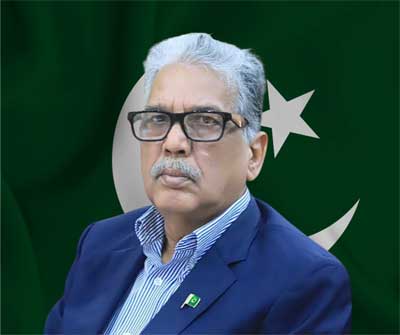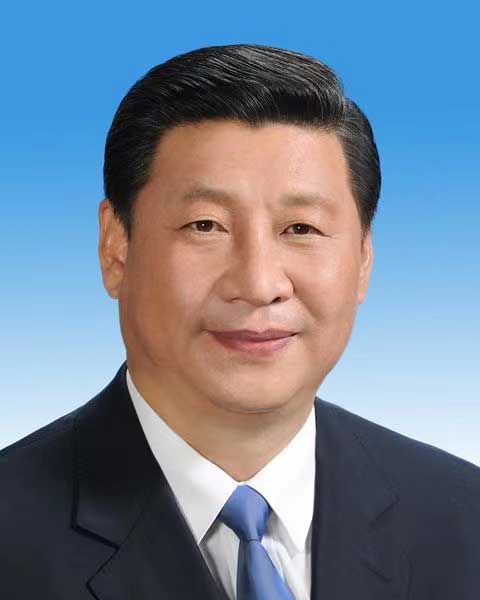

Peoples Republic of China (PRC) is celebrating the 75th anniversary of its founding on October 1, 2024, this Diamond Jubilee marks a monumental milestone in the nation’s history. At the core of this remarkable journey stands one powerful force: the Communist Party of China (CPC). Since its inception in 1921, the CPC has played a pivotal role in steering the country through seven and a half decades of transformation, from a war-torn, fragmented nation to one of the most formidable global superpowers. Throughout these 75 years, the Party has shaped China’s political, economic, and social landscape, guiding the country through revolution, reform, modernization, and beyond. The leadership of key figures-such as Mao Zedong, Deng Xiaoping, Jiang Zemin, Hu Jintao, and Xi Jinping-has been instrumental in China’s extraordinary rise. Their contributions have defined different eras of governance, allowing the Party to evolve, adapt, and meet the complex challenges of each historical phase, ensuring its continued dominance on both the national and global stage.
Under the CPC’s leadership, China has experienced profound changes. From the early revolutionary spirit that unified a broken nation to the sweeping economic reforms that fueled rapid modernization, and from international isolation to a position of global influence, the Party’s role has been unwavering. The Diamond Jubilee is not just a celebration of China’s founding, but a reflection of the Communist Party’s resilience and adaptability in steering the nation toward prosperity and global prominence. Over these 75 years, the CPC has demonstrated an exceptional capacity to balance ideological continuity with pragmatic governance, ensuring that China remains a stable and powerful entity in an ever-evolving world.
Mao Zedong and the Birth of the People’s Republic
The victory of the Communist Party in 1949, led by Mao Zedong, marked the birth of the People’s Republic of China. Mao’s leadership was pivotal in unifying a fractured country emerging from years of civil war and foreign invasion. Under his vision of Marxist-Leninist socialism, the Party sought to reshape China into a society where equality and collectivism were paramount.Mao’s early initiatives, such as land reforms and the collectivization of agriculture, aimed to redistribute wealth and eliminate feudalism.
Mao’s era laid the ideological foundation for the CPC’s role as the sole governing body, cementing the Party’s influence over every aspect of Chinese life-from politics to the economy, culture, and education. Despite the challenges, his leadership unified China and created a distinct political system rooted in Communist principles, which would be further evolved by his successors.
Deng Xiaoping: Economic Reform and Opening Up
Deng Xiaoping’s rise to power in the late 1970s marked a dramatic shift in the Party’s strategy. After the tumultuous years of Mao’s rule, Deng recognized the need for pragmatic reforms to rejuvenate China’s stagnant economy. Under his leadership, the CPC implemented a series of economic reforms that transformed China into a global economic powerhouse.
Deng’s policy of “reform and opening up” allowed market forces to play a greater role in the economy, while the CPC maintained firm political control. Special economic zones were established, foreign investment was encouraged, and private enterprise began to flourish. By embracing elements of capitalism within the framework of socialism, Deng lifted millions out of poverty and set China on a path of unprecedented growth. His famous declaration, “It doesn’t matter whether a cat is black or white, as long as it catches mice,” reflected his pragmatic approach to governance, prioritizing results over rigid ideology.
Jiang Zemin and Hu Jintao: Stability and Global Integration
The next two decades, under Jiang Zemin and Hu Jintao, were characterized by efforts to maintain stability while further integrating China into the global community. Jiang, who led China through the 1990s, oversaw its accession to the World Trade Organization (WTO) in 2001, a monumental step that cemented China’s role as a critical player in the global economy. He also introduced the “Three Represents,” a theory that expanded the Party’s definition to include the growing class of entrepreneurs and professionals, ensuring the CPC’s relevance in a rapidly modernizing society.
Hu Jintao continued these efforts, focusing on sustainable development and harmonious societal growth. Under his leadership, China emerged as the world’s second-largest economy. Hu’s policies addressed the growing inequalities that rapid economic growth had created, emphasizing the importance of balanced development.
Xi Jinping: The New Era of Chinese Power
Xi Jinping, who became China’s top leader in 2012, has taken the Party’s influence to new heights. His era, which he describes as a “new era of socialism with Chinese characteristics,” has been marked by a consolidation of power within the Party and a more assertive global posture for China.
Xi’s anti-corruption campaign has been one of his most defining domestic policies, targeting corrupt officials and Party members to enhance the CPC’s legitimacy. He has also reasserted the Party’s control over many aspects of Chinese life, from the economy to social media and civil society. Under Xi, the CPC has emphasized its role not just as a political organization, but as the moral and cultural leader of the nation.
Internationally, Xi has pursued ambitious projects like the Belt and Road Initiative, aimed at expanding China’s global influence through infrastructure investments in Asia, Africa, and beyond. Domestically, the CPC under Xi has prioritized high-tech innovation, military modernization, and long-term plans like the “Made in China 2025” strategy to make China a leader in advanced industries. His vision for the future, encapsulated in the “Chinese Dream,” seeks to position China as a leading global power by mid-century while maintaining the CPC’s unchallenged authority.
Evolution to Meet Modern Challenges
Over its 75 years in power, the Communist Party of China has shown an extraordinary ability to adapt to changing circumstances. From Mao’s revolutionary zeal to Deng’s economic pragmatism. and Xi’s centralized authority, the CPC has evolved to meet the needs of the nation and navigate the challenges of each era.
One of the Party’s most significant achievements is its ability to maintain stability in a nation of over 1.4 billion people, despite rapid social and economic changes. However, modern challenges remain: managing the growing middle class’s aspirations, addressing environmental concerns, and navigating a complex global environment where China’s rise is both welcomed and feared.
As China celebrates its 75th founding anniversary, the CPC remains the driving force behind the country’s growth, shaping its future while drawing on its revolutionary past. The Party’s continued evolution and its ability to meet modern challenges will be critical in determining China’s path in the decades to come.





